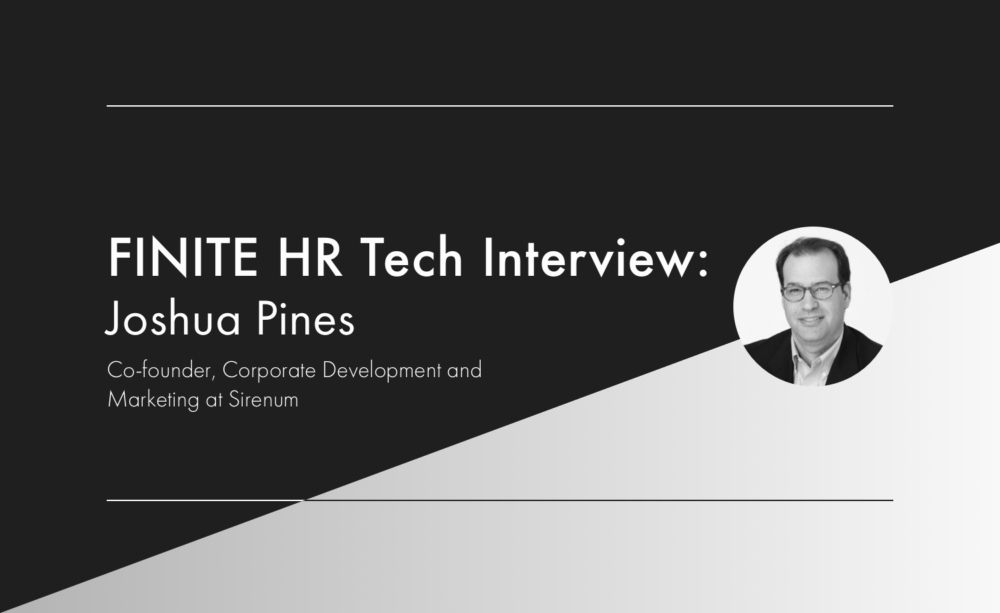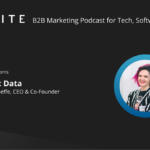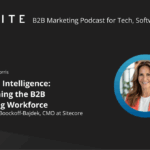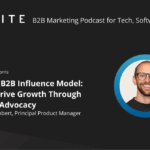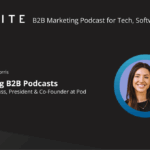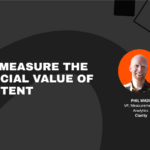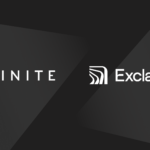A B2B tech marketing strategy should evolve as it reaches new rounds of funding. In HR Tech marketing, this evolution needs to account for the changing HR Tech field and adapt to its developments.
In this interview, we talked to Joshua Pines, Co-Founder of Sirenum – a leading HR Tech platform that manages shift workers. Joshua told us about his experience marketing through a Series A funding round and the challenges he has overcome.
As co-founder of a leading HR Tech platform, Joshua has a unique perspective on the wider HR Tech landscape, and even thinks the term ‘HR Tech’ needs a rebrand. Maybe we should rename our interview series!
Read the full interview to learn:
- What the B2B marketing strategy of Sirenum looked like before reaching Series A as a bootstrap business
- How B2B marketing for Sirenum will change going forward, to expand their product range and target audience
- A big challenge of B2B marketing at a series A stage: to build a team of athletes
- How Joshua as an HR tech leader, foresees the future of HR Tech and how marketing should adapt to this
FINITE: Hi Joshua! Can you tell us about your background in HR tech marketing, and your current role as Co-founder, Corporate Development and Marketing at Sirenum?
Joshua: Hi, thanks for the question. I’ve been more broadly in enterprise technology B2B. In some cases that’s been a marketing role, or it’s been strategy, or it’s been both as a management consultant.
I was introduced to the CEO and founder of Sirenum. He had a deep background in the staffing space and had built the Sirenum technology to better manage his own workforce. He had a workforce of about a thousand people all around greater London and broader in the UK, primarily in rail, events and security.
I had previously been the director of marketing for a large clinical research software company called Metadata where it’s a similar challenge. You have a process that you need technology to make more efficient and automated. Thankfully we felt my experience was very applicable.
FINITE: It sounds like a bit of fate.
Joshua: That’s a good way to put it. Interestingly I was introduced to my co-founder by two different people and I was looking to get back into the startup world. I had been in mid-sized, larger companies for a while and at that stage in my career, it was an opportunity to get my hands on something bigger than just a little pocket of a company. Somewhere I could have an influence.
I think company culture is something that’s always been interesting to me, and being able to influence that and inculcate that from the start has been interesting.
What we do, we call workforce management. I think on its own, the term HR is viewed as problematic. Because what do you go to HR for? Problems. You only go there to complain about something and, and they have a lot of negative connotations. That’s not to take anything away from all the hardworking HR people out there. I just think that a lot of newer businesses will call that role chief people officer. I think there’s a rebranding needed for HR as a category. Certainly there’s nothing wrong with calling it that, but I’m not alone in thinking that at all.
FINITE: So you’ve just reached a Series A funding round. Congratulations! What did your B2B marketing strategy look like before this?
Joshua: Marketing strategy is an interesting question. When you’re mostly a bootstrap business, and we had a little cash injections here and there along the way, you have to be more creative.
We were faced with the challenge of building a market, which is thought leadership and education. That’s why I’m responsible for corporate development and partnerships, because we needed to be able to walk in the door and tell our story alongside other key players in order to be taken seriously.
We’re dealing with mission critical operations and personal information. Therefore it’s a bigger hurdle to overcome for people to say, “I’ll trust you to handle my payroll information or handle worker skills information.” If you run payroll wrong for two weeks you can go out of business. There’s not not a lot of margin for error. We had to be very thoughtful about how we positioned ourselves. That’s why partnerships were an important part of our early marketing strategy.
It’s always about ROI and justifying how much time you spend dedicated to going after a bunch of small customers with a ton of outbound efforts, versus working with our partners to go after big names in the industries, which helped us establish our brand.
We built our brand with associations to names like Great Western Railway in the rail industry, or Randstad in the staffing industry.
FINITE: That’s a great start. What does your B2B marketing strategy look like now that the HR Tech landscape has changed and you’ve got Series A funding?
Joshua: Well, guess who’s doing outbound lead generation programs now?
There are now some legitimate competitors in this space. When we started there were not really any, and certainly none with the ambition that we have.
So one thing that is evolving is we are now focused on marketing our value on ROI. We deliver more than just defining the category. So when we think of our messaging and positioning, it’s about marketing our value.
Our mission is to build a market and sell our technology for any country in any industry in the world. We’re one of the few players that have clients in Belgium, Germany, in the US, Australia, New Zealand and Hong Kong.
Now in every one of those countries we might’ve had a competitor and therefore had to position our product accordingly. But in very few cases were we facing the same competitor across multiple countries. In the past few years some have developed, so prospects are coming in and they know about workforce management for shift workers.
As a result, our positioning and messaging has evolved at the strategy level. What that means is, what is the plan? What are the tactics that we’re using to get the word out there? How are we able to communicate that value? So we’re doing more customer case studies and more ROI calculator work to be able to better communicate that.
Pandemic aside, and I don’t mean to dismiss that, but some of the planning has to go on trade shows for next year. We’re starting to look in countries for marketing campaigns that we wouldn’t have ever gone after before because we didn’t have the arms and legs or the money to do so.
At the end of the day, having a little money in our pocket means we can do things that we couldn’t previously do.
FINITE: What are some of the biggest challenges that B2B marketing at a Series A stage poses?
Joshua: The investment gives us some time and room to breathe. There’s still not enough money to do everything we’d like to do – rarely there is.
Perhaps as a co-founder I’m more aware of this, but one of the things we talk about in going from seed stage to round A stage is being able to build processes to support scaling in a way that we can grow our team fourfold without changing anything. That means that we have to define the culture and the way of communicating.
Then we can do more because we have more people to do it. For example, can we do more promotional programs for rating sites? When it was just me on the team and only half dedicated to marketing, I frankly didn’t have the bandwidth.
As you’re going from angel to seed to round A, at the beginning you hire anybody who’s bright and flexible and can do a little bit of stuff. Now, you hire some people who are flexible, but can bring certain things to the table. For the first time we’re hiring with specific requirements in mind.
I know I need more digital skills on the team, because before we could make do with whatever we had. That brings a different caliber of CV to the table, and that brings a different interview process. So even thinking about things like are we asking the right questions? Are we testing the candidates in the right way so that we get a good feel for how he or she is going to be able to take this onboard?
FINITE: What makes a good marketing candidate?
Joshua: That’s a good question.
One of my closest friends, whom I met through work and I really respect, she calls them athletes. She says you want athletes on your team because things move too fast in marketing. You want to be able to plug them in.
Something that I think is really big for our corporate culture, I look for people who are thoughtful and passionate. A lot of people think those are diametrically opposed. If you’re not able to do both when appropriate, you miss out on too many opportunities. When there’s an opportunity, they can raise their voice and put their whole weight behind it.
The challenges of making the most of our people have always fascinated me. That’s what we’re selling for our clients. We’re helping them, not just digitally transform their business, but operationally transform their business because they’re revisiting the way they think about their workforce. That’s mirrored in a very small way, in the way that our business is evolving,
FINITE: That’s a great perspective. How do you foresee the future of HR Tech and how will HR Tech marketing develop with this?
Joshua: This is a good question. So I think that there’s a lot of consolidation on the company side and there’s a lot of convergence happening on the technology side.
So we see, for example big HR platforms like Workday adding more and more functionality, analytics etc. They’re establishing a larger and larger footprint. We see applicant tracking systems pulling in more technology upfront to expand their capabilities. And in the workforce management space, we’re an example of a business that is starting to extend our footprint, build our product suite.
Part of that is an age old marketing challenge of evolving from a single product company to a multi-product company. I think HR tech marketing needs to support this future. The naming architecture to support it, the messaging and value propositions to support it and to justify it.
We talked a long time before the pandemic about this idea that even before full support for working from home during the pandemic, desk workers have seen a lot of benefits in the last 15 years. Like getting your paychecks on your phone or via email, and having internet portals to be able to access HR information.
But shift workers have been completely overlooked in that space. They’re still working the same way that they did 50 years ago and they’re managed that way too. During the pandemic, we’ve evolved our tagline to say we’re ‘powering the essential workforce’, because these are the workers that we’re reliant upon as a business.
FINITE: That’s really interesting. So you’re marketing for the individual, but not at the individual?
Joshua: We to date have done very little marketing towards the workers. At the end of the day it’s their organisations that are paying for our products, they’re the ones that we have the relationship with.
We have an interesting model. We are B2B to B2C, the staffing client is our client. They have an end client that they are providing staff for. So we have technologies sitting in front of every person in that value chain, but at the end of the day the decision maker is our first client.
Now that’s evolving. We’ll have more technology that may have a different role and therefore a different purchase process. So we have to do some marketing towards the end workers.
What I’d like to do is more of that, both messaging, activities, tactics etc. Right now it’s primarily focused on our clients and their end clients. But that’s part of the whole universe of people of people we’re touching that provides an endless supply of an audience for us.
FINITE: That’s a very thought-provoking aspect of HR Tech. Thank you so much for giving us so much insight Joshua!
To read the last edition of the FINITE HR Tech Interview Series, and to learn about thought leadership content within B2B marketing, head here!
